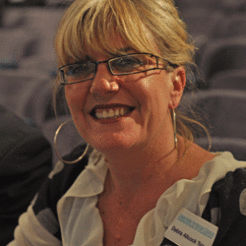Debra Allcock Tyler has condemned trustees for not speaking out against media criticism about chief executive pay, calling their behaviour “appalling”.
The chief executive of the Directory for Social Change made the criticism at the Charity Law Conference, saying that trustees should have spoken out when the sector's chief executives recently received criticism.
She said: “Almost none of the trustees came out and said that we’d chosen what to pay them and that they should stop going after that one individual.”
Tyler was joined on the panel by the chief executive of the Charity Commission Sam Younger, chair of NCVO Martyn Lewis, Lord Hodgson of Astley Abbotts who led the review on the Charities Act, and Rosamund McCarthy, a partner at Bates Wells Braithwaite.
Speaking as part of the panel, Martyn Lewis also spoke out about trustees, saying it is their job to be on top of everything that is going on in their charities. He said about the role: “It is not just something nice to put on your CV, it is a real responsibility.”
The plenary session, which was on 'Charities under the microscope – is the sector sufficiently transparent?', led to debate over how much effect transparency had on trust in the sector.
Tyler stated that she had seen no evidence of giving declining when a charity was deemed to not be transparent; however McCarthy argued that giving in Northern Ireland had dropped since scandals involving the pay of executives in some of the top charities.
Tyler also argued that transparency wasn’t the only issue, believing that charities in general are transparent, however knowledge about the data provided by charities needed to be translated to the public.
However, referencing the recent guidelines on pay produced by NCVO, Lewis said that all this information should be publicised more, by being available on its website, and not just hidden in charity’s accounts. He said “why should donors have to play detective” in order to find out the information they want to know about a charity before they donate.
Sam Younger was questioned about whether the Charity Commission could ever become a “trip adviser” for the charity sector, advising people where their money is best spent. He responded by saying that the Commission would never have the resources to do this efficiently and is only there to regulate.
However, in terms of the Commission’s transparency, Younger said: “We are sitting on a lot of different information on charities and we should make it easier for others to investigate.”
Commenting on the transparency and regulation of smaller charities, Hodgson said: “There is no way the Commission can regulate smaller charities in the way the public thinks it is doing.”
Hodgson made similar comments earlier this week suggesting that small charities should be exempt from Charity Commission regulation.









